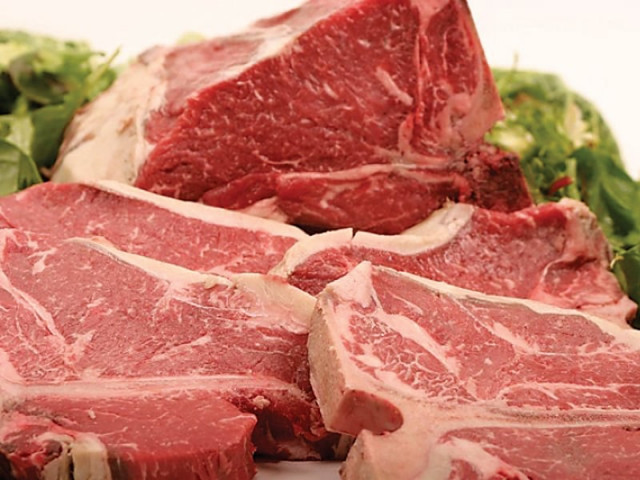Meat, dairy and power: Exploring other options, Fauji Fertilizer expands business
As profit of core fertiliser unit falls, the company takes steps to diversify.

The company, which saw profit from the core fertiliser business fall due to gas shortage and increase in its price, has incorporated wholly-owned subsidiaries of Fauji Meat, Fauji Foods and Fauji Power for the purpose.
“They are following the Engro model. Margins are down in the core fertiliser business so it’s better to diversify,” said Shahid Ali, Head of Research Summit Capital.
Project cost for Fauji Meat Limited is estimated at Rs6.4 billion. FFBL said financing would be arranged in the first half of 2015 and production would start later in the year.

The money will be used to build an abattoir for slaughtering animals and selling meat in local and foreign markets.
Many Pakistani businesses, including Engro, have ventured into the meat business, considered to be very lucrative and long ignored. Pakistan exported $230 million of meat and meat preparations in 2013-14, a 9% rise over the previous year, according to the Pakistan Bureau of Statistics.
But the export of about 74,000 tons constituted just a fraction of the 2.5 million tons of beef and mutton produced in the country, said the Economic Survey of Pakistan.
FFBL said Fauji Foods was conducting market research and feasibility studies to gauge various opportunities in the dairy sector.
Other ventures
Last month, FFBL announced it was considering acquiring up to 24.9% shares in Noon Pakistan Limited, the makers of Nurpur butter and milk products. Noon, which also makes UHT flavoured milk, pasteurised milk, juices and cheese, saw production go down in the last three years. From a peak of 43 million litres in 2011, it processed just 21 million litres in 2014. It has also been incurring net losses for the past two years.
Despite repeated attempts, no one from the company was available for comments.
The most substantial investment of $265 million goes into building a 118-megawatt coal-fired generator near FFBL’s fertiliser plant in Bin Qasim.
FFBL Power, as it would be called, has already approached the power regulator to determine the plant’s tariff. It is also in talks with K-Electric for the sale of electricity.
It would secure necessary financing in the second half of 2015 and planned to commence operations in the first half of 2017, it said.
Like all other producers, the core fertiliser business of FFBL has taken a hit due to gas supply curtailment and increase in its price. Fertiliser companies use gas both as feedstock and fuel. In the nine months to September 2014, FFBL booked a net profit of Rs1.77 billion, down 46% compared with the same period of last year.
Ali said FFBL’s profit margin had been stagnant. “In fact, it is no longer paying dividends like it used to do. Diversification will help the company cope with this problem.”
FFBL did not comment on the story.
Published in The Express Tribune, December 9th, 2014.
Like Business on Facebook, follow @TribuneBiz on Twitter to stay informed and join in the conversation.



















COMMENTS
Comments are moderated and generally will be posted if they are on-topic and not abusive.
For more information, please see our Comments FAQ